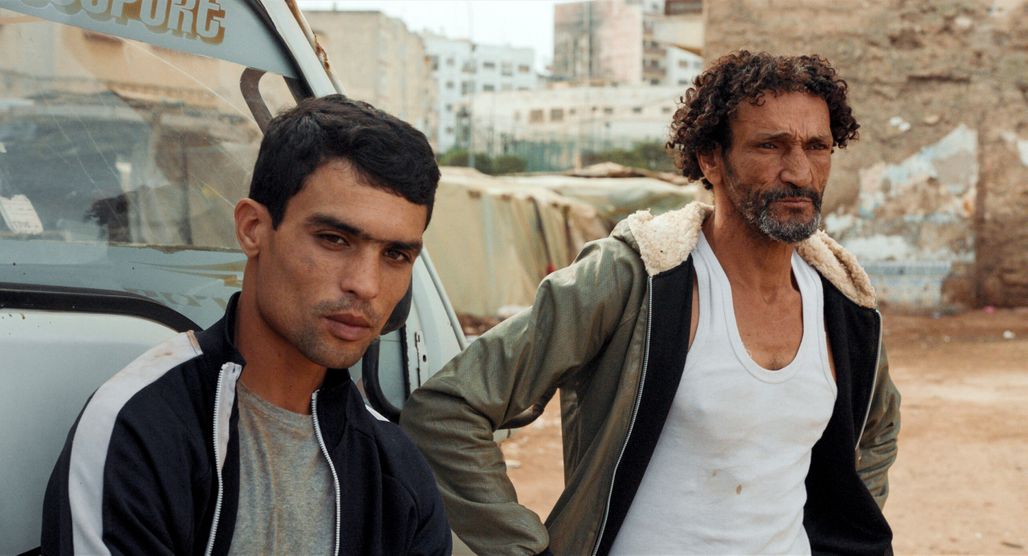
Les Meutes (Hounds), Kamal Lazraq’s vision

His first film school film, Drari, earned him 2nd prize from la Cinéfondation in 2010. Kamal Lazraq is back in Cannes with his first feature film,Les Meutes (Hounds), shot in Casablanca. The film is a close examination of the relationship between Hassan and Issam, a father and son who make a living from petty crime. One day, the two take on a very perilous task.
Tell us about how you got the idea for your film.
I made a 30-minute short film, Moul Lkelb (The Man with a Dog), which took place over the course of a single night, in the milieu of dog fighting. This short film led me towards Les Meutes (Hounds), in an extension of the same universe.
Can you tell us a little bit about your actors?
In Les Meutes (Hounds), there are almost no professionals, as in my film Drari, which I shot in Casablanca. I noticed Ayoub Elaïd (Issam, the son) in a photo. He made me think of Franco Citti in Accattone. I met him, I filmed him, he really gave off a Pasolini vibe. I kept looking and when I wanted to see Ayoub again, he’d disappeared. We looked for him and found him in his village. He came up to us and didn’t understand: “I’m not an actor”, he said. He needed convincing.
It was Ayoub who introduced me to Abdellatif Masstouri. He was running a small grilled sardine stand. His face, at once solar and weathered, really struck me. Abdellatif has had a quite the life, very eventful: he went off to Europe, became a Taekwondo champion, served time in prison, and so on. He had something to express. We did some tests with these two actors and it worked.
What was the atmosphere like on set?
Working with non-professionals opens the door to the unexpected. My actors come from very different social backgrounds. They have their struggles with addictions. I rewrote some scenes in the morning on the spot because one of the actors hadn’t come. I had warned the team and the director of photography that these two actors were the heart of the film, that they were great but that they were not professionals. The goal was to not hinder their natural intensity through too many technical constraints. They weren’t managing to hit their marks, for example, so our method had to adapt to them.
What would you like people to take away from your film?
When writing the script, I didn’t want to burden the film with psychology. It seemed to me that this father-son relationship would be stronger by going through attitudes, looks, silences… As a spectator, I think it’s more interesting to not have all the keys, to have space for interpretation and the freedom for one’s own reading.
What made you want to become a director? What influenced you?
It was in Paris that I discovered certain films that were a stimulus, films very different from those that I would go on to make later. For example, Ingmar Bergman’s Autumn Sonata was my first shock, something that make me understand all the emotional power there could be in cinema. I then discovered film closer to those that I make now: Italian neo-realism, the films of Ken Loach, American films of the 70s… Then I did the Fémis exam, a school where I really started to make films.


